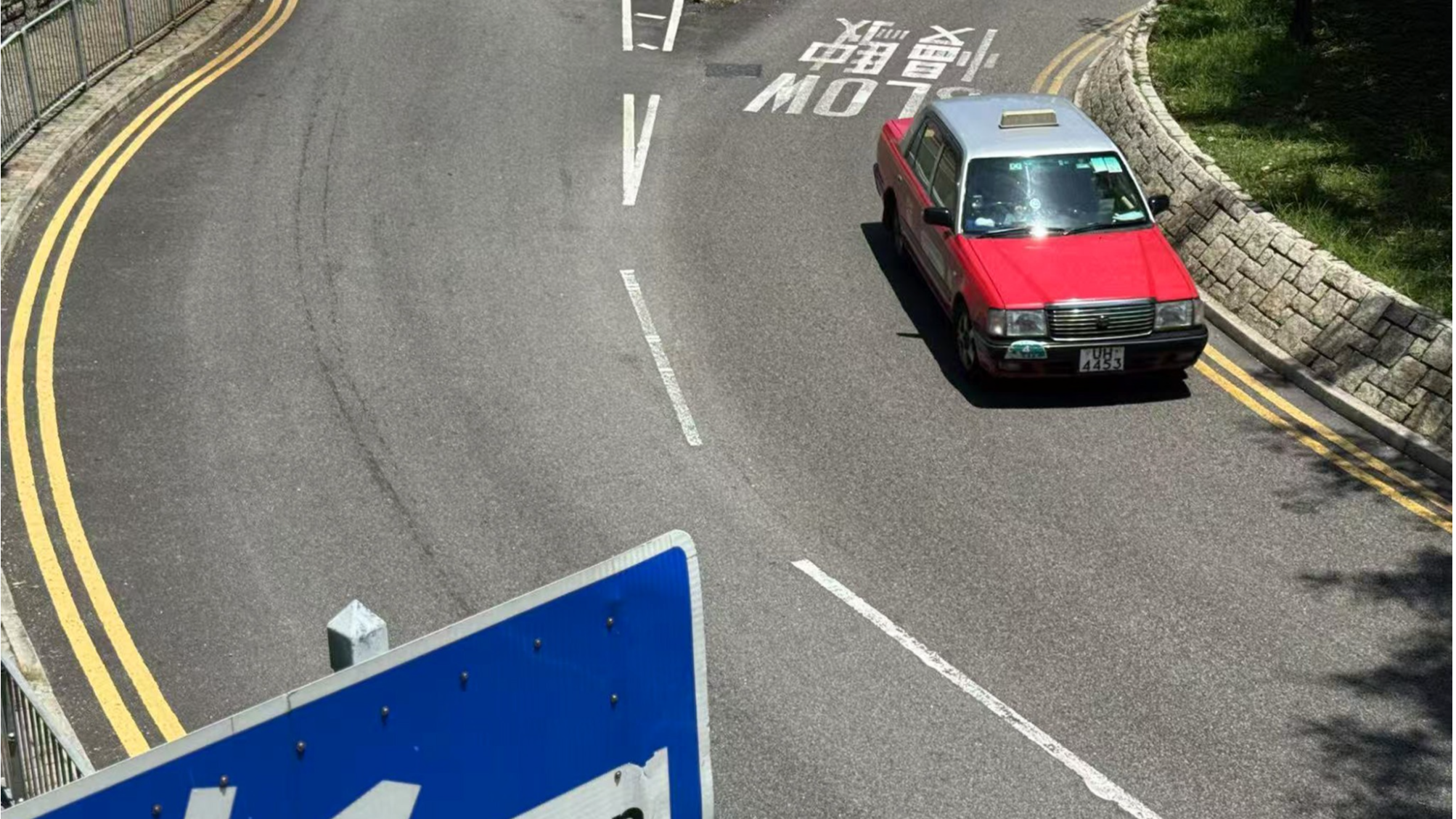
Taxi drivers and passengers on Friday welcomed Hong Kong’s new mandatory electronic payment and in-car surveillance measures, saying the measures will help combat malpractice and restore public trust in the taxi trade.
However, they urged the authorities to minimize disruptions to drivers’ livelihoods, noting that many elderly, tech-illiterate drivers may struggle to adapt due to the limited time and resources available for training.
From April 1 next year, all taxi drivers in Hong Kong — who have traditionally relied on cash payments, partly so they can retain small change and (in some cases) evade taxes — will be required to accept at least two e-payment options, according to the amendments to the city’s road traffic regulations, gazetted on Friday.
READ MORE: Taxis in HK must offer e-payment from April next year
One of the options must be QR-code based, such as Alipay or WeChat Pay, popular among Chinese mainland tourists, and the other must be a form of contactless payment, including Octopus or credit cards, according to the amendments.
In addition, in-car cameras, dashcams, and vehicle positioning systems — collectively termed Journey Recording Systems — will become mandatory by 2027 to enhance service quality.
Once the installation is completed, taxis must connect to the Transport Department’s central system to share surveillance data.
The authorities have assured the public that access to the system will be strictly limited — in accordance with privacy guidelines — and used only for investigating traffic offenses.
The government said it will start authorizing equipment suppliers in October.
The Transport and Logistics Bureau said the reforms are aimed at improving the experience of taxi passengers, especially tourists, who have often expressed frustration over the cash-only policies of many taxis.
The amendment bill will be tabled at the Legislative Council (LegCo) on July 23 for negative vetting.
“I think the authorities are heading in the right direction,” said part-time taxi driver Chan, who declined to give his full name.
The driver, who began working in the industry in 2023, said that in-car surveillance aligns with the wishes of many drivers seeking to improve the sector’s reputation, and will help the sector gain the public’s trust, respect, and ultimately more business.
“The recordings also protect us drivers,” he added, explaining how video evidence can prevent false accusations, such as of fare overcharging.
Chan described himself as an e-payments supporter, citing their convenience and hygiene advantages. His preferred methods include Octopus, the Faster Payment System (FPS) for instant bank transfers, and QR code scanning.
Payment preferences vary significantly across passenger groups, he said. While about half of local riders still favor cash, mainland tourists typically request WeChat Pay or Alipay. International visitors, meanwhile, often opt to pay on ride-hailing apps like Uber to bypass language barriers.
However, the 39-year-old explained that many older drivers still cling to cash payments because they lack digital skills, or may need immediate access to income or have tax concerns.
According to Transport Department data from 2022, about 60 percent of the city’s taxi drivers were aged 60 or older.
To help drivers adapt, the authorities have pledged to work with e-payment providers to organize training workshops.
Chan said that such training must be practical, and proposed giving digital payment instructions at gas stations while drivers queue to refuel, as well as at locations where drivers hand over their shifts.
“The training needs to fit around drivers’ schedules,” he said.
Wang Lin, who relocated to Hong Kong for work in 2022, welcomes the new e-payment mandate but questions whether surveillance cameras alone can significantly improve the quality of service.
After years in the mainland’s cashless economy, Wang was shocked to find Hong Kong taxis routinely reject digital payments.
She recalls one time when she had to borrow cash from the concierge of the building she lives in after her taxi driver refused e-payment. “Now I never leave home without cash,” she said.
READ MORE: HK to launch e-fixed penalty tickets for traffic violations
The commuter, who daily takes a taxi from Wan Chai to Kwun Tong to save time, explained that after years of making small talk with drivers, she believes there is a deeper issue: Many older drivers are under severe financial pressure, which she believes fuels their impatience with passengers.
“These are systemic problems that cameras can’t fix overnight,” Wang said, adding that the small change they retain from cash payments often constitutes a critical part of struggling drivers’ income.
She said that e-payment solutions should not burden drivers with additional costs, such as excessive transaction fees charged by digital platforms, or with operating difficulties.
Contact the writer at lilei@chinadailyhk.com


